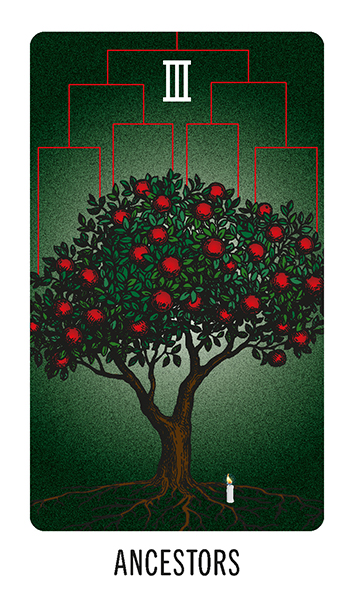Ancestors
Connecting to people in the past and being a good ancestor to those in the future.
Ancestors don’t have to be biological! We can link to people from the past through stories, energy and possibilities. Our trancestors lives have often been portrayed as sad but maybe that says more about who has traditionally told the stories than the people they are about! We can honour our ancestors through imagining their joy.
In Episode 1 of Adventures of Time and Gender, we begin by looking for the first ever trans person in order to prove that trans people have always existed. Then we meet Iphis and his Mum from Ancient Greece and the Chevalier d’Eon from the eighteenth century.
Some more places to start looking for trancestors –
Chase Joynt is an award winning Canadian filmmaker whose work has been described as “breathing new life into a lineage of collaborators and conspirators who have been forgotten for far too long.” Co-directed with Aisling Chin-Yee, “No Ordinary Man” reimagines the story of trans jazz musician, Billy Tipton. Watch the trailer here.
Framing Agnes “endeavours to widen the frame through which trans history is viewed”. Find out more about the project here.
Adam Zmith’s podcast The Film We Can’t See makes queer connections across generations – “a genre-bending adventure where documentary meets imagination” and also features Jana Funke from this project.
One From The Vaults is a trans history podcast by Morgan M Page. Bringing you all the dirt, gossip, and glamour from trans history!
It’s also worth checking out Danielle Brathwaite-Shirley’s Black Trans Archive video game: “We Are Here Because of Those That Are Not”
Your Queer Family tree: tracing your trancestory
You are invited to expand your notions of family, creating a queer family tree that claims and connects you to your transcestors. Family trees are a way of honouring our lineage, connecting us to those that have gone before, to the history of trans liberation and to those we can draw strength and inspiration from.
These questions are prompts to get you thinking about who your transcestors are and how they contribute to your queer family tree.
Who are the trans, queer and gender non-conforming people in history that you draw on as a source of strength today? What is it about them and how they lived that inspires you? What elements of their life, ethics, or ways of doing things, do you try and interweave into yours? How did they clear the pathway for you and your gender?
We can think about people as having stories that connect us, rather than being from the same social categories as us. There are many ‘debates’ over if we can claim people as being trans and/or queer when they lived in different social, historical and cultural contexts, and so had different language practices, social categories and labelling possibilities. No matter if there are arguments about if someone was trans or queer or not you can still have them in your queer family trees or at your important celebrations.
Historian Hugh Ryan tweeted:
“20th C scholars were of a time when all signs of gender inversion were considered signifiers of hidden homosexuality. Of course, this has led to so many fights over whether historical figures were “gay” or “trans” – fights that are unanswerable in most cases, because they were neither. They had ideas that don’t match ours, especially around the line between gender and sexuality. Instead, I think a more fruitful question we can ask of these figures is “Are they part of gay history or trans history?” There, the answer is always: both! They are the ancestors of queer community broadly. We have evolved FROM them; they are not waiting to live up to our ideas.”
Exercise – Alternative Parents
Alternative Parents: If you where the love child of three people who would they be? What have you inherited in terms of character, spirit or skill from each of them? What are you yet to inherit, what is still to come?
Alternative family party: Imagine a party to celebrate an important moment in your life (it could be a birthday, important moment in transition, celebration of an achievement at work or school, etc.) who, out of everyone living or dead would you like to come? Describe each person and why you would like them there? what do they offer you as inspiration? How do you imagine they would like to celebrate with you?
You might like to write down or draw a family tree or some other image that represents these connections.
The Museum of Transology (MoT) not only allows us to connect with other trans people’s stories it also provides the opportunity for us to be good ancestors by making our stories available for the next generations. It is the UK’s most significant collection of objects representing trans, non-binary and intersex people’s lives.
Founder, E-J Scott says “Never again will historians be able to say that you can’t call trans people ‘trans’ in the past. Never again will trans, non-binary and intersex people be hard to find in history. And never again will the records of our lives be written by the media that spectacularise us, the legal systems that criminalise and the psychiatrists who pathologise us.”
Visit the museumoftransology.com
Extra questions to ponder
As well as looking back, it’s important to look forward and see how we are contributing to trans lives yet to happen. How can you be a good ancestor for the next generation? By living your life, what are you nurturing for the next generation? How will your joy make space for the joys of trans people in the future?
How does thinking of your self as a good ancestor help you to make decisions about what’s best for you now?
When you imagine yourself as a trans elder what would you like the next generation to be saying about how you lived your life?

